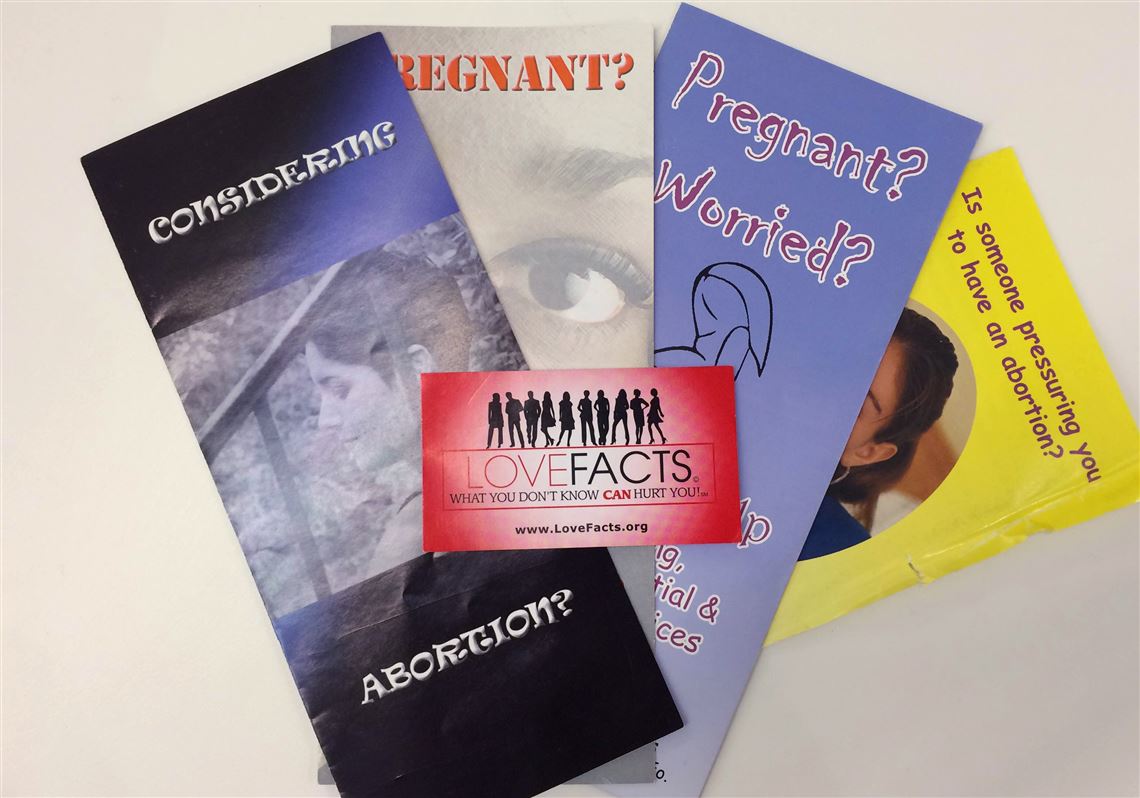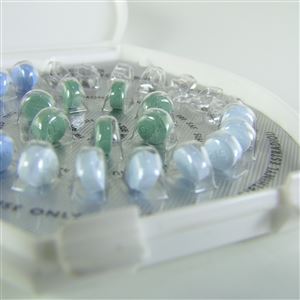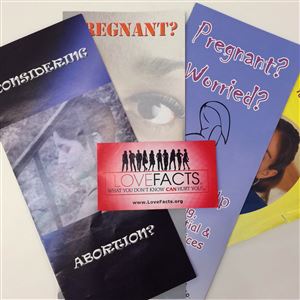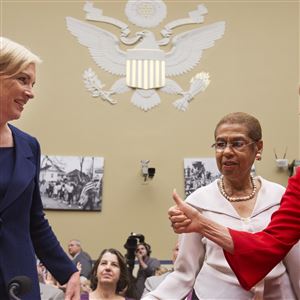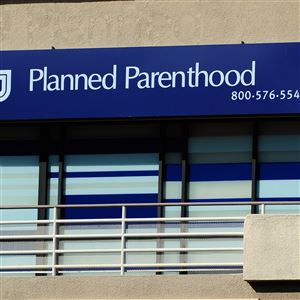First of a two-part series
It may be the only part of Gov. Tom Wolf’s proposed budget that hasn’t been controversial: The $6.7 million allocated to “Expanded Medical Services for Women” is, after all, just the latest installment for a program that began two decades ago. And who could argue with a program described as funding “food, shelter, clothing, health care, counseling … and other support programs”?
But that money, a mix of state and federal funds, is earmarked for organizations that oppose abortion and pledge not to recommend artificial birth control. And while some recipients are long-trusted charities, others promote dubious claims about abortion’s health impacts.
Supporters say the funding simply helps women in difficult circumstances. “If a woman is single and finds she is having a child, and is nervous and concerned, those centers would be providing support,” said state Rep. Kathy Rapp, R-Warren, who chairs the state Legislature’s Pro-Life Caucus.
In Washington, D.C., the country’s best-known family planning organization, Planned Parenthood, has become a political lightning rod: Congressional Republicans have threatened a government shutdown unless it is cut off from public money. But in Pennsylvania, taxpayer support of an avowedly anti-abortion program has largely escaped attention.
“It is not simply a program that provides … support to pregnant women,” said Sue Frietsche, a senior staff attorney at the Women’s Law Project. “There is a clear ideological agenda behind it.”
‘We’re going to help’
Pennsylvania is one of more than a half-dozen states that fund abortion-alternative programs with tax dollars. (Several others do so using proceeds from “choose life” license plates.) But the Keystone State pioneered the practice in the early 1990s.
That’s when the late Gov. Robert P. Casey, an anti-abortion Democrat, began providing equal funding for women’s health services (though not abortion itself) and an abortion-alternatives program. “Funding for both is necessary and worthwhile,” a Casey aide told the Philadelphia Inquirer in 1993.
Doing so “was a political deal,” said Elizabeth Nash, a senior state issues advocate with the Guttmacher Institute, a research organization that supports reproductive rights.
In 1997, the state selected Real Alternatives, a Harrisburg-based nonprofit, to administer the abortion-alternatives program. According to Real Alternatives’ agreement with the state, the program provides counseling and support so pregnant women “no longer feel compelled to choose abortion out of a sense of helplessness.”
Real Alternatives’ current five-year contract, valued at $30.2 million, expires in 2017. Most of that money is disbursed to 40-some nonprofit service providers, which Real Alternatives monitors and reimburses.
To participate, providers must pledge not to discriminate or charge fees. They must also “maintain a pro-life mission” and “provide abstinence education as the best and only method” of birth control, according to the pact.
Real Alternatives is paid to oversee the program, with president and CEO Kevin Bagatta receiving $234,955 in salary and benefits for the 2013-14 fiscal year. Neither Mr. Bagatta nor Thomas Lang, vice president of operations, responded to phone calls or emailed questions. Several area agencies participating in the program also did not return calls or declined an interview.
Providers range from smaller entities such as Alternatives Yes, a pregnancy support center in Connellsville, to Catholic Charities, a long-established charity whose services include a Downtown Pittsburgh housing program for low-income mothers.
Susan Rauscher, executive director of Catholic Charities in the Pittsburgh Diocese, said, “If you’re a woman who is unexpectedly pregnant and whose partner steps out, [the program] gives us as a state the ability to say, ‘We’re going to help you through that.’ ”
Alternatives Yes executive director Andrea Pritts said her center offers free pregnancy tests, classes and support and “lay counseling.” A “mother’s pantry” with cribs, diapers and other supplies is available for needy families.
“Real Alternatives is what allows us to be here,” Ms. Pritts said.
Many providers wear their convictions on their sleeve, with names such as “TryLife Center” or obvious ties to anti-abortion religions. “We’re so clear on where we stand on abortion that it doesn’t come up” with clients, Ms. Rauscher said.
But not every provider’s anti-abortion position is so obvious.
Harrisburg’s Morning Star Pregnancy Services, for one, states its mission baldly in IRS filings: “to empower people to make life-giving choices as a demonstration of Christ’s love.” Its website, however, advertises a free ultrasound that “provides information that tells you what abortion methods are available.”
While the site states that “we do not provide or refer for abortion services,” it does not explicitly mention Morning Star’s mission. “We are here to help you consider all your options — including abortion, parenting and adoption,” it reads.
Morning Star’s director declined to comment. But abortion-rights advocates are wary of such facilities.
“I’m pro-choice,” said state Sen. Daylin Leach, D-Montgomery. “If people are going to these providers knowing what they are about, I have no problem with it. My problem is if people are being misled or shamed, or if they are being aggressively talked out of something they want.”
‘Cruel and wrong’
So-called “crisis pregnancy centers” — which may offer counseling and ultrasounds but don’t always publicly advertise their opposition to abortion — have long been controversial.
In March, NARAL Pro-Choice America issued a report charging such centers lure women in by professing to offer clinical services but then use “deceit and coercion” to pressure them not to abort. A 2006 report released by U.S. Rep. Henry Waxman of California, an abortion-rights Democrat, said that of 23 centers his investigators visited, 20 “provided false or misleading information about the health effects of abortion.”
The Pittsburgh Post-Gazette gathered brochures from three area nonprofits who received funding through Real Alternatives. Some of the literature includes claims that have been debunked by most researchers.
“Did ‘they’ really tell you everything? … Should you look into the risks that are being discovered, things like an increased risk of breast cancer, depression, nightmares, guilt,” reads one brochure. Another states, “Women who had abortions have increased risk of breast cancer.” A third asserts, “There is evidence that abortion is associated with a decrease in emotional health. … This psychological response is a form of post-traumatic stress disorder.”
“Recent research confirms that the best choice physically, emotionally and psychologically to an unplanned pregnancy is childbirth and the worst is abortion,” says a website bearing the Real Alternatives name and referred to in one brochure.
While the brochures cite studies to support those claims, most scientific evidence, and the opinion of groups such as the American Cancer Society, rebuts them.
“Early studies of the relationship between prior induced abortion and breast cancer risk were methodologically flawed,” said a committee of the American College of Obstetricians and Gynecologists in 2009. “More rigorous recent studies demonstrate no causal relationship” between abortion and breast cancer.
Nada Stotland, former president of the American Psychiatric Association, called it “cruel and wrong” to tell women that getting an abortion would lead to mental illness.
“The last entity that should be perpetuating this is our own government,” said Dr. Stotland, who has written about psychiatry and women’s reproductive health, including abortion.
Ms. Rapp, the anti-abortion legislator, said the program gives women “the right to make an informed decision and to know what the alternatives are.”
She said such information was important “especially in light of what we’re seeing in the Planned Parenthood videos” which, anti-abortion activists claim, show Planned Parenthood staff discussing how the organization profits by selling tissue from aborted fetuses. (Planned Parenthood says the videos were misleadingly edited. Early investigations in Pennsylvania and other states have not found evidence of wrongdoing.)
“We just share the information,” said Ms. Pritts, whose facility displayed information suggesting links between abortion, breast cancer and psychiatric disorders.
“Some doctors would tell you coffee is bad for you, and another would say a couple of cups is OK,” she continued. “I don’t know that [linkage] has completely been debunked.”
Abortion-alternative providers aren’t all alike, said the Guttmacher Institute’s Ms. Nash. Some may “string women along or scare them,” while others simply provide tangible support. And some of those women “have already decided they want to continue a pregnancy. So the notion that those centers are changing minds may not be entirely true.”
Even so, she added, while “somebody could say, ‘Hey, if you get these dollars, you have to provide medically accurate information,’ we’ve never seen a state do that. If you’re trying to help a [pregnant] woman, doesn’t she deserve medically accurate information?”
Tomorrow: How much oversight do state-funded abortion-alternative providers receive?
Molly Born: mborn@post-gazette.com or 412-263-1944. Chris Potter: cpotter@post-gazette.com or 412-263-2533.
First Published: October 4, 2015, 4:00 a.m.







